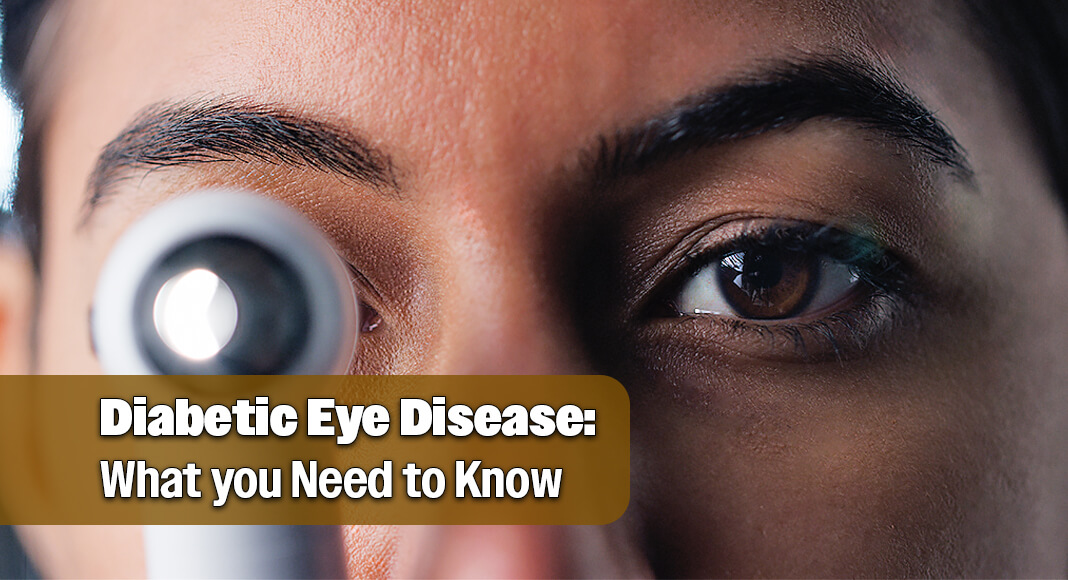
Texas Border Business
By American Society of Retina Specialists
Newswise — CHICAGO – Managing diabetes requires a team of healthcare professionals, from primary care physicians to endocrinologists. But when it comes to protecting vision from complications of diabetic eye disease, there’s one specialist whose expertise is irreplaceable: a retina specialist. With up to 10 years of advanced medical training and access to the most sophisticated diagnostic and treatment technologies available, retina specialists are uniquely qualified to diagnose, monitor, and treat vision-threatening complications of diabetes before irreversible damage occurs, according to the American Society of Retina Specialists (ASRS).
“Many people with diabetes may understand the importance of working with an endocrinologist to manage aspects of their diabetes like their A1C, but they may not realize that safeguarding their vision requires the same level of specialty expertise,” said ASRS President Geoffrey G. Emerson, MD, PhD, FASRS. “Retina specialists aren’t just another eye doctor—we’re fellowship-trained physicians and surgeons who have dedicated our careers to mastering the complexities of retinal disease. That depth of training and experience makes all the difference in preserving sight.”
Nearly 40 million Americans have diabetes, and approximately half will develop diabetic retinopathy, the leading cause of irreversible blindness in working-age Americans. An estimated 9.6 million people in the United States currently have diabetic retinopathy, while diabetic macular edema (DME)—which can cause severe vision loss—affects approximately 750,000 Americans. During November’s Diabetic Eye Disease Awareness Month, the ASRS is highlighting why retina specialists are an essential part of every diabetes care team.
What Sets Retina Specialists Apart
Not all eye health providers have specialized training to manage diabetic eye disease. Retina specialists undergo additional subspecialty training after medical school, equipping them to provide the highest-quality and safest care for people with diabetic eye disease:
Advanced Training: Retina specialists are medical doctors who have completed four years of medical school, one year of internship, three years of ophthalmology residency, and an additional 1-2 years of fellowship training specifically focused on diseases and surgery of the retina and vitreous. This extensive 10-year training pathway makes them the most qualified experts to diagnose and treat diabetic retinopathy and diabetic macular edema.
Surgical Expertise: Retina specialists are the only eye health providers trained to perform the delicate microsurgical procedures required to treat advanced diabetic eye disease. These procedures involve operating on retina tissue thinner than a butterfly’s wing with extraordinary precision.
Complete Treatment Arsenal: From diagnosis and monitoring to intravitreal injections, laser treatments, and complex surgery, retina specialists offer the full spectrum of care options. This expertise allows them to create truly personalized treatment plans and adjust approaches as a patient’s condition evolves.
Technology Pioneers: Retina specialists haven’t just adopted advanced imaging technologies—they’ve pioneered them. Innovations like optical coherence tomography (OCT), ultra-widefield fundus photography, and fluorescein angiography were developed and refined by retina specialists to enable earlier detection and more precise treatment of retinal diseases.
From Research Lab to Patient Care: The Innovation Advantage
Retina specialists are actively involved in the clinical research that drives new treatments for diabetic eye disease, meaning patients who see retina specialists benefit from care provided by physicians at the forefront of medical innovation.
“The anti-VEGF drugs that have changed the game for treating diabetic macular edema are the result of research done by retina specialists,” Dr. Emerson explained. “In our field, we’re always fine-tuning treatments based on the newest evidence, which leads to better results and a better quality of life for our patients.”
Recently, retina specialists have made great strides with new versions of anti-VEGF drugs that last longer. This means patients can maintain visual improvements with fewer injections each year. Patients interested in accessing the latest innovations can learn more about clinical trials at www.asrs.org/patients/clinical-trials.
Building Your Diabetes Care Team: When to See a Retina Specialist
Everyone with diabetes should have regular dilated eye exams, but it’s particularly important to see a retina specialist if you:
- Have been diagnosed with diabetic retinopathy or diabetic macular edema
- Experience any vision changes, including blurred vision, floaters, shadows in your field of vision, or difficulty reading
- Have had diabetes for many years, as disease duration increases the risk
- Have poor blood sugar control, high blood pressure, high cholesterol, or kidney disease
Even if you have diabetes but have no symptoms of diabetic eye disease, partnering with a retina specialist to monitor your vision can help detect problems in their earliest stages when treatment is most effective.
Take Action to Protect Your Vision
In addition to working with a retina specialist, people with diabetes can protect their vision by:
- Getting regular dilated eye exams as recommended by their healthcare team
- Controlling blood sugar, blood pressure, and cholesterol levels
- Maintaining a healthy weight and staying physically active
- Taking prescribed diabetes medications as directed
- Quitting smoking
- Reporting any vision changes immediately
Find a retina specialist near you by visiting www.FindYourRetinaSpecialist.org. For more information about diabetic eye disease, visit SeeforaLifetime.org. At ASRS.org/RetinaHealthSeries, you can access downloadable fact sheets written and illustrated by medical experts on diabetic retinopathy, macular edema, and other retinal conditions.








